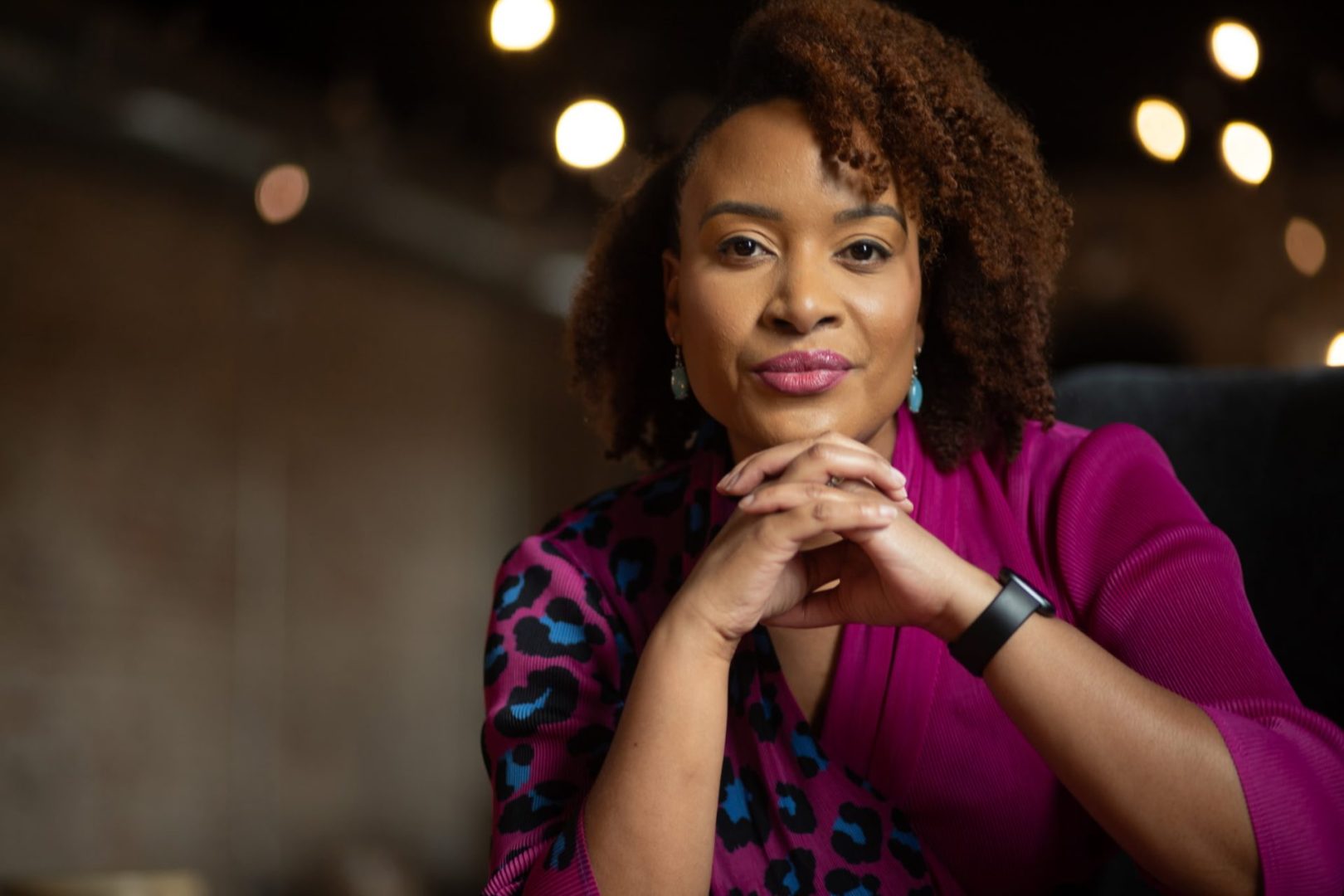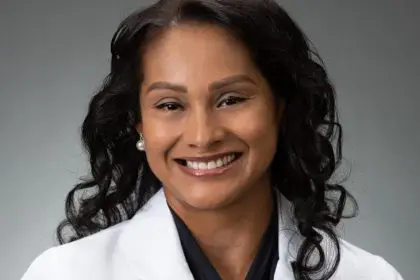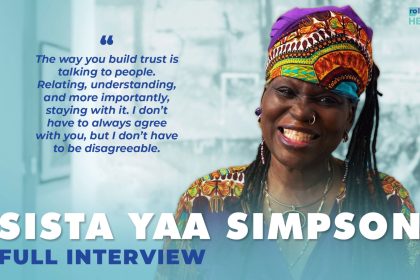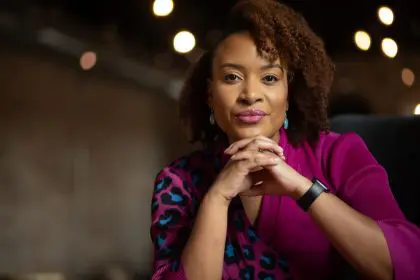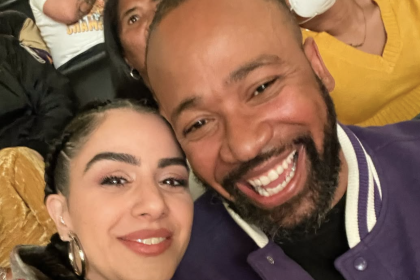The name of Dr. Tenise Hordge’s nonprofit, More Milk, contains a subtle wordplay that perfectly captures both her professional expertise and expansive vision. As an International Board Certified Lactation Consultant with a doctorate in healthcare administration, Dr. Hordge has positioned herself at a unique intersection where specialized clinical knowledge meets systems-level advocacy.
“The milk is Maternal Impact Leadership and Knowledge,” she explains during a recent interview, her voice carrying the measured conviction of someone who understands that seemingly disconnected systems are, in fact, deeply intertwined. “While our focus really centers around breastfeeding, we understand that looking at maternal health as a whole, especially in marginalized communities and the Black community, we can really affect positive change as it relates to breastfeeding.”
This holistic approach distinguishes Dr. Hordge from many healthcare specialists who remain siloed within their particular domains. By tracing the connections between lactation support and the broader social determinants affecting maternal outcomes, she has developed a comprehensive framework for addressing what she describes as “high and infuriating and scary maternal morbidity and mortality rates that Black birthing women are experiencing here in Texas.”
The multidisciplinary expert reshaping maternal health conversations
Dr. Hordge’s background defies easy categorization. Beyond her credentials as a lactation consultant and her doctorate, she brings professional experience in project management and engineering to maternal health advocacy. This unusual combination allows her to approach entrenched healthcare disparities with analytical rigor and methodical problem-solving.
“We’re going to be bringing that corporate energy into this summit,” she notes, describing the hands-on breakout sessions planned for her upcoming event, “The State of Black Maternal Health.” Participants will develop communication plans, identify strategic contacts, and map pathways to influence change – activities more commonly associated with business planning than healthcare conferences.
This corporate-inspired approach reflects Dr. Hordge’s understanding that maternal health disparities persist not just because of clinical failures but because of disconnected systems that fail to communicate effectively. Her solution involves bringing together stakeholders who rarely share the same space: birth workers, allied health professionals, community leaders, and activists.
The summit’s agenda reflects this expansive vision, addressing mental health aspects of maternal care, postpartum support, prenatal expectations, innovative policy approaches, and communications strategies derived from social determinants of health. Each component represents a deliberate effort to bridge institutional divides that have traditionally hampered comprehensive solutions.
Creating sustainable community connections
One of Dr. Hordge’s most pointed critiques of the current maternal healthcare system centers on what happens after birth. “Oftentimes we see families in the hospital and that’s it. We don’t have a really good system outside of discharge, and that’s an issue, that’s a concern,” she explains.
To address this critical gap, the summit features Misty Wadler from Dallas Health and Human Services discussing sustainable community outreach programs. This extension of care beyond clinical settings represents a fundamental shift in how maternal health is conceptualized – not as a discrete medical event but as a continuum embedded within community supports.
Perhaps most innovative is the summit’s final component: a connections panel designed to ensure that no participant leaves without knowing where to direct families in need. “There’s so much crossover in the populations that we serve. There should be no reason for someone leaving the summit saying, ‘Oh, I have a family that has need XYZ, I don’t know where to send them,'” Dr. Hordge insists.
This resource-mapping approach tackles a persistent challenge in community health: the existence of services that remain underutilized because providers in adjacent systems lack awareness of them. By highlighting resources like Bridges Safe House in Cedar Hill and the Afiya Center in Dallas, Dr. Hordge creates pathways for families to access existing supports that might otherwise remain disconnected from maternal health networks.
Leveraging established community organizations
Among the summit’s most unexpected elements is a panel featuring representatives from the Divine Nine (historically Black fraternities and sororities) and Jack and Jill of America. “People are always like, well, how does that fit in?” Dr. Hordge acknowledges, before explaining the strategic thinking behind this inclusion.
“These organizations have been advocating for well over a hundred years for children. Our communities and those are transferable skills,” she notes. The summit will explore how these established networks with deep community roots can pivot their considerable organizational capacity toward maternal health advocacy.
This approach exemplifies Dr. Hordge’s talent for identifying untapped resources within existing structures. Rather than building entirely new systems – a time-consuming and often inefficient approach – she seeks to redirect and amplify capabilities already present in communities most affected by maternal health disparities.
Educating with intention
Throughout the interview, Dr. Hordge returns repeatedly to the importance of education – not just for expectant mothers but for entire support networks including male partners. “We have well informed people, but not necessarily with the right information,” she observes, identifying a subtle but crucial distinction.
More Milk addresses this gap by providing evidence-based education that contextualizes breastfeeding within broader maternal health outcomes. This approach builds agency among families navigating healthcare systems that have historically marginalized Black women.
The summit extends this educational mission by equipping attendees to understand both the statistical realities of maternal health disparities and their contributing causes. Armed with this knowledge, participants can develop localized interventions targeting specific community needs – whether in Texas or Chicago or anywhere else facing similar challenges.
From summit to sustained action
Dr. Hordge has no intention of allowing the summit to become merely a moment of inspiration without follow-through. “Next on my agenda is really creating some round tables,” she explains, detailing plans to develop action lists and accountability structures to ensure implementation of ideas generated during the event.
This methodical progression – from problem identification to strategic planning to coordinated implementation – bears the unmistakable stamp of Dr. Hordge’s project management background. It also addresses a common criticism of health equity initiatives that generate powerful conversations but insufficient action.
As the interview concludes, Dr. Hordge offers a compelling call to historical responsibility: “You have to determine what side of history you want to be on.” Her work suggests that meaningful alignment with justice requires more than good intentions – it demands strategic thinking, collaborative action, and sustained commitment to systems change.
For those interested in learning more about the summit or Dr. Hordge’s approach to maternal health equity, information is available at www.moremilk.org and through her clinical practice, Mother’s Magical Milk, across social media platforms.

